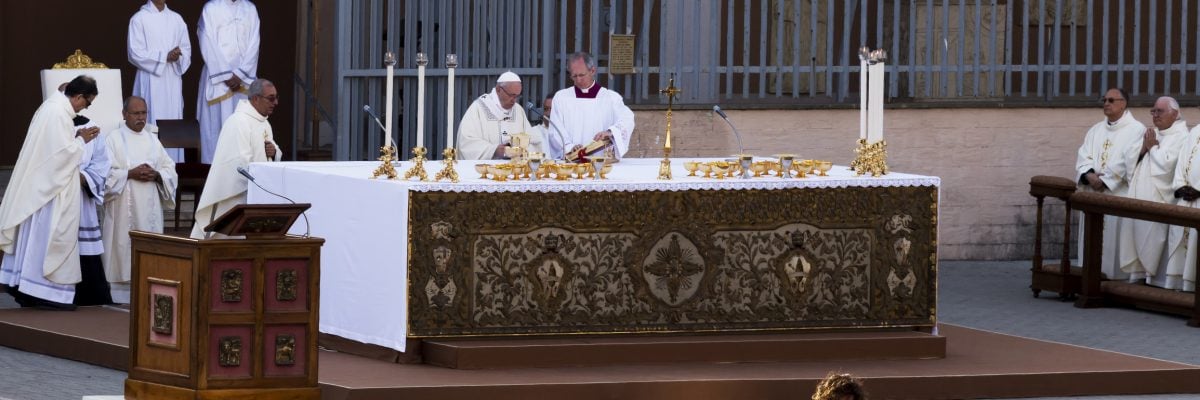
Question:
Answer:
There have always been various local decrees, or decrees that covered a great amount of territory, that attempted to regularize the celebration of the Holy Eucharist. Thus, in the Christian East, the rite of Constantinople, called sometimes the “Byzantine” rite, took the place of much of the Syrian rite in Asia Minor and Syria, and in the Christian West the rite of the church of Rome tended to replace local rites in Gaul and Spain. Even so, in all their history they never universally replaced all of the local rites.
The successors of the emperor Charlemagne imposed the Roman rite on their territories, and the Normans imposed the Roman rite on the British Isles, for example. But local rites in Milan in Italy, Lyons in France, and Toledo in Spain remained, and do so to this day.
The first practically universal promulgation of a rite of the Mass was by St. Pius V in 1570 in his bull Quo Primum Tempore, when he imposed the Roman usage of the Roman rite on the whole Latin Church, but even he allowed for local variations of more than 200 years’ standing. Then there was the universal promulgation by Blessed Paul VI of the revised Roman Missal in 1969, but this promulgation of what is often now called the “ordinary form” did not abolish the missal promulgated by St Pius V. So the most one can say is that these decrees were practically universal, but none of them abolished exceptions, which have always existed and will continue to exist.
A very recent example is the approval of the Anglican-use missal for the Anglican Ordinariates. This missal is a variation of the Roman rite but moves in the direction of being a kind of fusion of the old Roman rite and the new one, albeit in the vernacular.



